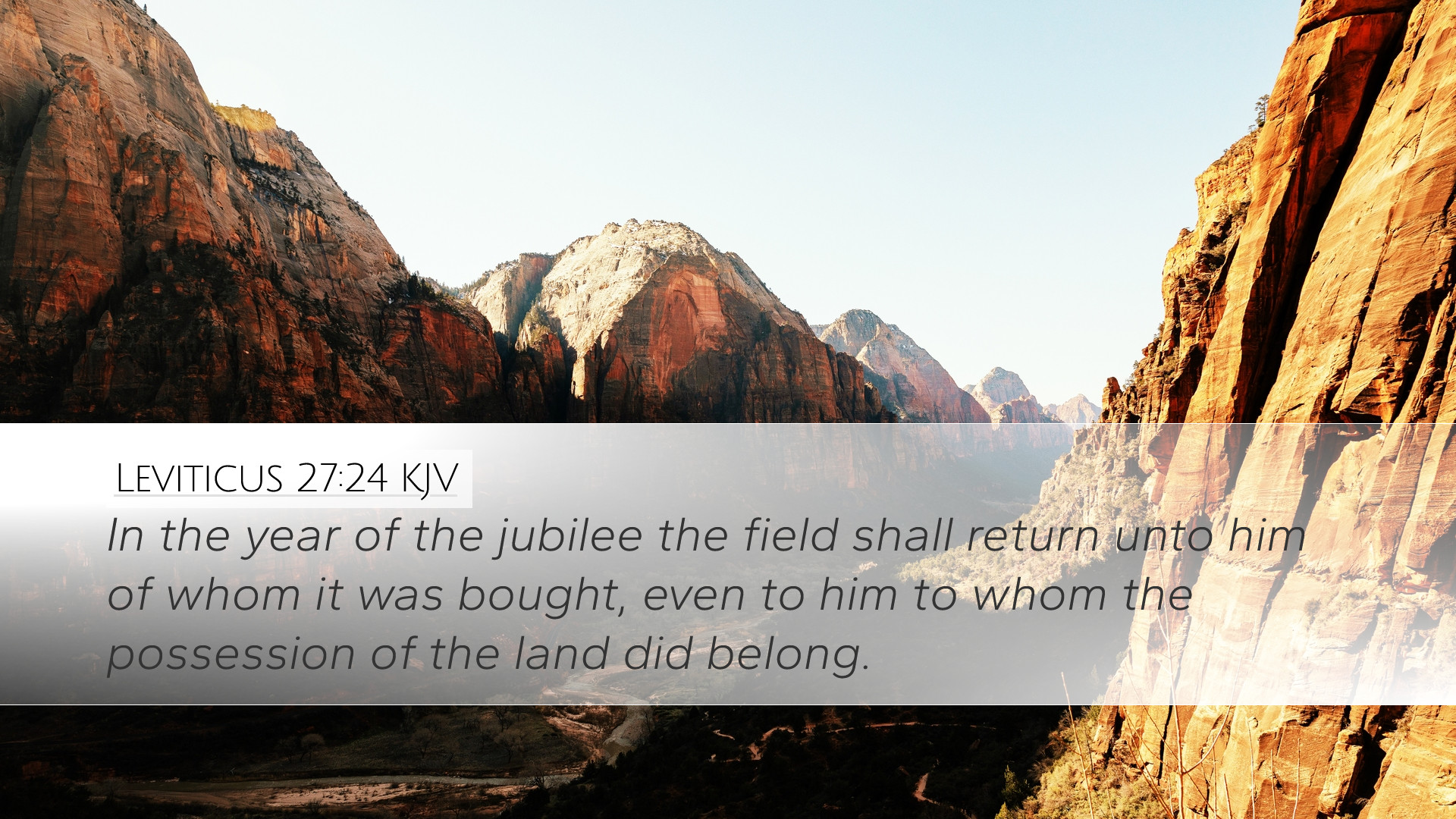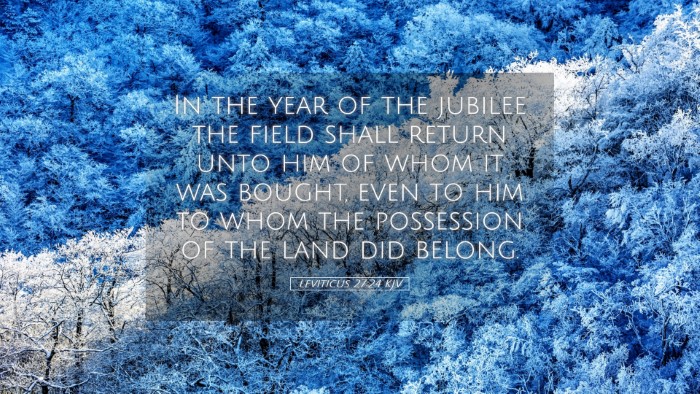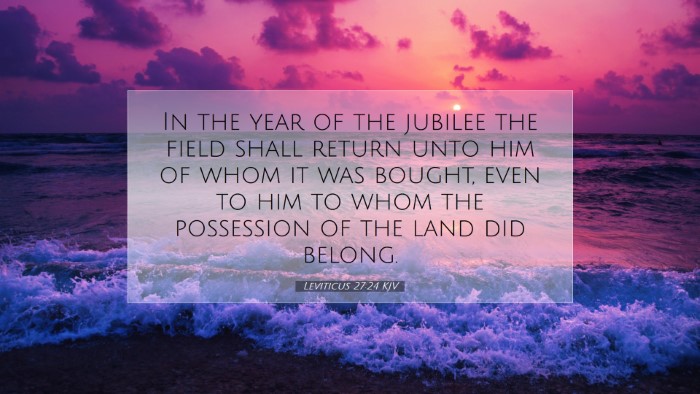Commentary on Leviticus 27:24
Leviticus 27:24 states: "In the year of the jubilee the field shall return unto him of whom it was bought, even to him to whom it the possession of the land." This verse presents deep theological implications about property, ownership, and divine justice in the context of the Jubilee year. A careful examination of traditional commentaries sheds light on its significance.
Contextual Overview
The book of Leviticus is primarily concerned with the laws and guidelines that govern the conduct of the Israelites, particularly relating to holiness and social justice. The passage from which this verse derives emphasizes God’s authority over the land and His desire for the equitable distribution of resources among His people.
The Significance of the Jubilee
The Jubilee year, occurring every fiftieth year, was a time of restoration. According to Matthew Henry, this pattern established by God was to ensure that all Israelites maintained their ancestral inheritance. The significance lies not only in financial restitution but also in the maintaining of community and familial ties. The verse underscores the idea that the land fundamentally belongs to God and He graciously allows His people to steward it.
Property as Divine Trust
Albert Barnes remarks that the regulations for property return highlight the fact that land was not merely an economic asset but a sacred trust from God. This divine ownership reinforces the concept of stewardship rather than ownership in the modern sense. The return of land in the Jubilee serves as a reminder that wealth should be used for the glorification of God and the welfare of His people, not for personal gain alone.
Preservation of Family Heritage
Adam Clarke elaborates on the family aspect of property ownership in the context of Israelite society. Leviticus 27:24 insists that ancestral lands must revert to their original families, thus preserving the heritage and identity of each tribe. Clarke emphasizes that this practice fosters a sense of belonging and security within the community. It provided a safeguard against poverty by ensuring that no family would be permanently dispossessed of their land."
Theological Implications
This verse offers profound insights into the nature of God’s justice and mercy. The return of land every fifty years can be interpreted as a metaphor for God’s ultimate restoration, both spiritually and physically. It points towards a broader biblical theme: that despite human failure and sin, God will restore His people to their rightful place.
God's Faithfulness
According to Matthew Henry, this law showcases God's faithfulness to His promises. The cycle of the Jubilee speaks to the hope that, regardless of current circumstances, God's people can always anticipate redemption and renewal. This not only applied in temporal matters but was also prophetic in nature, pointing to the ultimate redemption available through Christ.
Sociopolitical Justice
Albert Barnes provides commentary on how these laws functioned as a radical form of social justice and were designed to prevent economic disparities among the people of Israel. He notes that these laws were ahead of their time, promoting egalitarianism and ensuring that wealth did not accumulate solely with the powerful or the privileged. The structure of society was based on reciprocity and care for the welfare of every Israelite.
Contemporary Applications
For modern readers, Leviticus 27:24 poses questions about justice, ownership, and community responsibility. Pastors and theologians can draw parallels to present-day economic systems and the importance of community welfare over individualism. The principles of stewardship, generosity, and compassion are deeply embedded within this scripture.
Land as a Gift from God
In their teachings, leaders can emphasize that ownership is not an end but a means to worship God by caring for creation and one's community. Adam Clarke would suggest that awareness of the temporary nature of our possessions calls believers to engage with society in a way that reflects Christ’s love and justice. This chapter provides a rich framework for discussing sustainability, social responsibility, and ethical consumption.
Restoration and Hope
Leviticus 27:24, with its implications of return and restoration, invites reflection on God's overarching plan for humanity. In a world riddled with injustice and inequality, the Jubilee principle challenges us to be agents of change, championing justice and making room for the marginalized. The Christian tradition views this as a reflection of the grace found in Jesus, who ultimately restores the broken.
Conclusion
The insights provided by commentaries from Matthew Henry, Albert Barnes, and Adam Clarke illuminate the depth of Leviticus 27:24. This verse is not merely legalistic; it encapsulates a divine ethic that honors community, justice, and restoration. Believers and scholars alike can find in it both challenges and promises—echoing the themes of stewardship and hope that run throughout Scripture.


